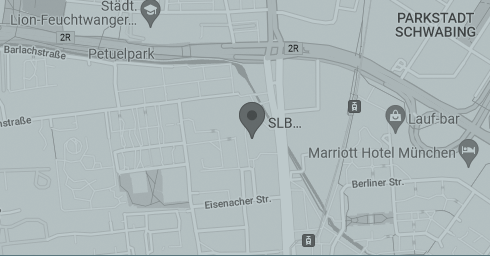
Company formation and employment law in Germany – Legal guidance for Italian companies
Legal certainty during expansion – guidance for Italian entrepreneurs
Germany is one of Italy’s most important trading partners and an attractive location for business growth. Many Italian companies are therefore considering expanding into the German market – whether by establishing a subsidiary, setting up a sales structure, opening a permanent establishment, or hiring their own staff locally.
However, this decision raises numerous legal and practical questions that regularly pose challenges for foreign entrepreneurs:
- Which legal form is suitable for my company in Germany?
- What are the specific steps involved in setting up a GmbH or a branch?
- What are the legal differences between Italian and German company law?
- How can I hire employees in Germany in a legally compliant manner?
- What do I need to bear in mind with regard to employment law, terminations, and the drafting of employment contracts?
- How do the employment law obligations of an employer in Germany differ from those in Italy?
Apart from the purely legal aspects, cultural and administrative differences often come to light, for example in dealing with authorities, drafting contracts or in the expectations of employees. Here, too, precise legal and strategic planning is essential.
Small and medium-sized Italian companies (PMI) in particular, which are operating outside Italy for the first time, need reliable legal guidance in order to enter the market efficiently and in a risk-aware manner. But even experienced companies with an international structure are regularly confronted with complex issues relating to liability, compliance, human resources management, and corporate governance.
The aim of this page is therefore to provide initial legal guidance – clearly structured, factually prepared and specifically tailored to the needs of Italian entrepreneurs. The focus is on practical issues of corporate and employment law, as these are areas where there is a particularly high demand for advice in practice.
1. Setting up a company in Germany – legal basics for Italian companies
The decision to set up a subsidiary or branch in Germany involves a number of legal and structural considerations for Italian entrepreneurs. In practice, it is often the choice of the right legal form, the formal steps involved in setting up the company, and the differences between the Italian and German legal systems that cause uncertainty.
Choosing the right legal form
Italian entrepreneurs have various legal forms at their disposal when expanding to Germany. The most popular choices are:
- Limited liability company (GmbH): The GmbH is the most common legal form for small and medium-sized companies in Germany. It offers a clear separation between company assets and personal liability and has legal capacity as an independent legal entity. The minimum share capital required by law is €25,000, of which €12,500 must be paid in upon formation.
- Branch office (filiale): As an alternative to forming an independent company, an Italian company can establish a dependent branch office in Germany. This is subject to German reporting and registration requirements, but remains legally part of the Italian company and has no legal personality of its own.
The choice of the appropriate structure depends largely on strategic, tax, and liability considerations. Industry-specific regulations, capital requirements, and organizational requirements must also be taken into account.
Founding process and legal requirements
Founding a company in Germany requires several legal steps to be taken:
- Preparation of the articles of association: In German and in compliance with mandatory legal requirements (e.g., regarding management, representation, capital structure)
- Notarization of the articles of association: Mandatory for corporations (e.g., GmbH, UG)
- Entry in the commercial register: Registration is carried out by a notary and establishes the legal existence of the company
- Registration with the tax and trade authorities: Registration with the tax office (for tax purposes) and, depending on the activity, with the trade office
- Opening a German business account: Prerequisite for the payment of the share capital
- Appointment and legitimation of managing directors: Foreign managing directors are also permitted, but are subject to certain documentation requirements
It should be noted that all documents and contracts must meet German formal requirements and that a certified translation is usually required if they were drawn up abroad.
Legal differences between Italy and Germany
Compared to Italian practice, the following differences are particularly noteworthy:
- Formalities for setting up a company: In Germany, companies must be set up before a notary and are closely linked to the commercial register. Registration is constitutive.
- Liability regulations: The separation between company and private assets is more strictly defined in Germany. Managing directors are only personally liable in exceptional cases. The choice of legal form is crucial.
- Appointment and liability of managing directors: The requirements for managing directors – particularly with regard to duties of care, avoidance of insolvency, and power of representation – are comprehensively regulated and sanctioned.
- Transparency register: Companies in Germany are required to disclose their beneficial owners. This may trigger additional obligations in corporate structures or in the case of trust relationships.
It is therefore essential for Italian entrepreneurs to familiarize themselves with the specific legal framework of German company law at an early stage and to coordinate the corporate structure with legal advice.
2. Employment law framework for Italian companies
Employing staff in Germany entails a number of legal requirements for Italian companies that differ significantly from Italian employment law. Anyone operating a subsidiary, branch, or business location in Germany must familiarize themselves with German employment law at an early stage in order to avoid legal risks and place their business on a stable employment law footing.
Fundamental questions arise as soon as employment relationships are established: What form must an employment contract take? What information is mandatory? How are working hours, vacation entitlements, and remuneration models structured under German law? How should part-time employees be treated? What obligations exist toward social security institutions?
Clear legal requirements also apply to the termination of employment relationships: notice periods, formal requirements, and possible grounds for termination must be taken into account, as must the scope of application of the Unfair Dismissal Protection Act. Unclear or incomplete regulations can quickly lead to disputes that end up in labor court—with considerable cost and reputational risks for the company.
Another key aspect is the different approach to issues such as probationary periods, warnings, dismissal, overtime, and redundancies for operational reasons. Many of these concepts differ significantly from Italian practice in terms of their scope, practical implementation, and legal assessment.
For Italian entrepreneurs, this means that when setting up their business in Germany, they are not only confronted with a new market, but also with a new employment law system. Anyone who concludes contracts or makes personnel decisions without qualified employment law advice risks unnecessary complications and financial burdens.
Obligations as an employer in Germany:
- Registration with social security institutions
- Conclusion of written employment contracts in accordance with German law
- Compliance with working time, vacation, and occupational safety regulations
- Consideration of co-determination rights in certain company sizes
3. Employment contracts and termination law
When hiring employees, a clearly worded employment contract is essential. This must comply with the requirements of the German Employment Evidence Act (Nachweisgesetz) and normally contains provisions on working hours, salary, vacation, notice periods, and non-competition clauses.
Typical types of contracts:
- Permanent employment contract
- Fixed-term contract (time-limited or for a specific purpose)
- Marginal employment (556 EUR/month)
Employment contracts: Form, content, and transparency requirements
In Germany, there is generally no formal requirement for permanent employment contracts. However, for reasons of legal certainty, it is strongly recommended that written contracts be concluded. Since the implementation of EU Directive 2019/1152 (Transparency Directive) at the latest, employers have been obliged to confirm certain essential working conditions in writing to their employees – ideally in the employment contract itself. Germany has implemented the requirements of the European Transparency Directive through the so-called Nachweisgesetz (Evidence Act).
According to this, a German employment contract should contain the following information, among other things:
- Name and address of both contracting parties
- Start of the employment relationship, duration if applicable (in the case of a fixed-term contract)
- Probationary period and duration, if applicable Job description and place of work
- Working hours and break regulations
- Amount and composition of remuneration (including bonuses)
- The composition and amount of remuneration, including overtime pay, bonuses, allowances, premiums, and special payments and their due dates, as well as the method of payment
- Vacation days per calendar year
- Notice periods and information on the termination procedure
The bilingual version (German/Italian) is useful in cross-border situations, but the German version should be authoritative in the event of a dispute.
Probationary period and protection against dismissal
In many cases, a probationary period is agreed at the beginning of an employment relationship. In the case of permanent employment relationships, this may not exceed six months. During this period, the employment relationship may be terminated with two weeks’ notice, provided that this is expressly stipulated in the contract.
Regardless of the probationary period, statutory protection against dismissal under the German Unfair Dismissal Protection Act (KSchG) only begins after six months of employment (“waiting period”). The KSchG applies to companies with more than ten full-time employees. Small businesses are generally exempt from this.
After this waiting period, dismissal is only permissible if it is socially justified. The law distinguishes between four types of termination:
Types of termination under German employment law
1. Termination for conduct-related reasons
This is based on culpable misconduct on the part of the employee (e.g., repeated tardiness, refusal to work). As a rule, a prior warning is required.
2. Termination for personal reasons
This is based on the employee’s personal circumstances, such as chronic illness, loss of driving license, or imprisonment, provided that this permanently impairs the employee’s ability to fulfill their obligations under the employment contract.
3. Termination for operational reasons
This is based on economic reasons (e.g., decline in orders, closure of a location). It requires a proper social selection process, which must take into account factors such as length of service, age, and maintenance obligations.
4. Extraordinary (immediate) termination
This is only possible in cases of serious misconduct, such as theft related to the employment relationship, gross insults, or assault. It must be declared within two weeks of becoming known.
Formal requirements: All terminations must be made in writing and signed by the employer. Verbal or electronic terminations are not legally valid.
Legal remedies: The employee may file a lawsuit against a termination with the labor court within three weeks of receiving it. If this deadline is missed, the termination is considered valid – even if it was incorrect.
Working hours, remuneration, and vacation
Working hours
The statutory maximum working time is eight hours per working day (Section 3 ArbZG). It may be extended to ten hours if an average of eight hours is maintained within six calendar months or within 24 weeks. Work on Sundays and public holidays is generally prohibited, but may be permitted in exceptional cases.
Remuneration
The statutory minimum wage has been 12.41 euros gross per hour since January 1, 2024. Higher collectively agreed minimum wages apply to certain industries (e.g., construction, nursing, electrical trades).
Vacation
Employees working a 5-day week are legally entitled to at least 20 days of vacation per year. In practice, 25 to 30 days are common. Part-time employees are also entitled to the same vacation entitlement as full-time employees, based on the number of weekly working days.
Conclusion
German employment law is highly formalized and employee-friendly. It is therefore essential for Italian companies to have all employment law issues examined by experts from the outset in order to avoid risks later on. SLB LAW supports employers in the legally compliant structuring of employment relationships, the development of internal regulations and in labor court disputes – reliably, structured and with an eye to business practice.
Italian-speaking legal advice in Germany
SLB LAW offers comprehensive legal support for Italian companies that are operating or wish to operate in Germany. As a full-service law firm with proven expertise in corporate and employment law, the Italian Desk assists clients in their native language – with legal precision and cultural understanding.
Our advice is provided by Italian-speaking lawyers, some of whom are 双重执业资格在德国和意大利, and includes both preventive contract drafting and representation in legal disputes. For tax issues, we work closely with experienced German tax advisors.
Die Entscheidung, in Deutschland eine Tochtergesellschaft oder eine Niederlassung zu gründen, ist für italienische Unternehmer mit einer Vielzahl rechtlicher und struktureller Überlegungen verbunden. In der Praxis zeigt sich, dass insbesondere die Wahl der richtigen Gesellschaftsform, die formalen Gründungsschritte sowie die Unterschiede zum italienischen Rechtssystem häufig Anlass für Unsicherheiten geben.
Get in touch with our Italian Desk. We will be happy to provide you with confidential and individual advice on your project in Germany.











